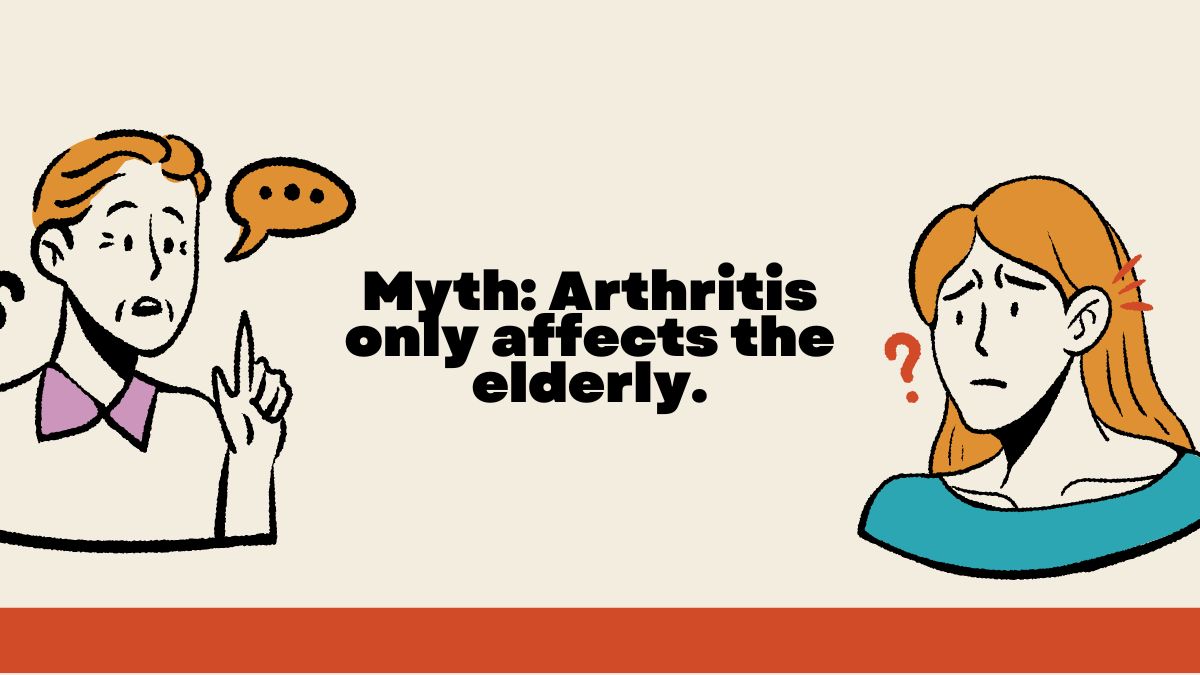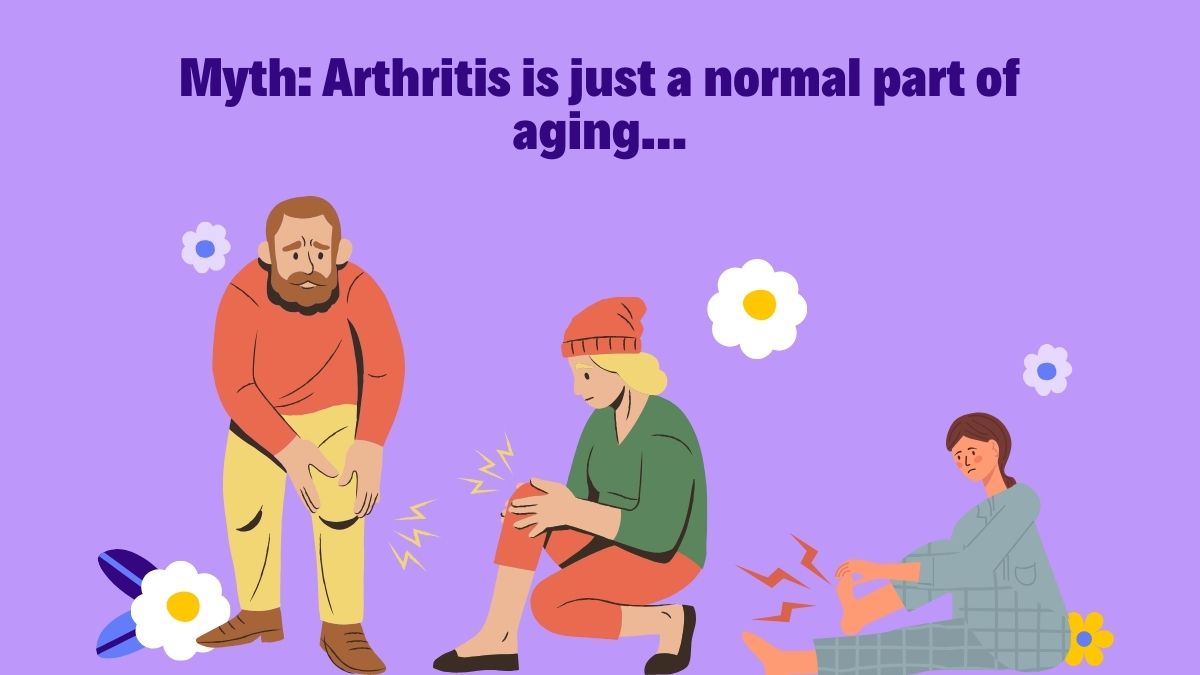- By Priyanka Munshi
- Thu, 11 Apr 2024 06:15 PM (IST)
- Source:JND
Inflammation in one or more joints causes pain, stiffness, and limited movement in people with arthritis. It can range in severity from minor discomfort to incapacitating agony, affecting millions worldwide. Various kinds of arthritis exist, each with different causes and treatment choices, such as gout, osteoarthritis, and rheumatoid arthritis.
Arthritis can affect people of all ages, including children, but it is more frequent in older individuals. Over time, symptoms may worsen, impacting daily life and activities. Physical therapy, medication, lifestyle modifications, and, in certain cases, surgery are commonly used in arthritis treatment.

Arthritis affects all ages but is more common in older people.(Image Credit:Canva)
In a conversation with Jagran English, Dr. Ramkinkar Jha, an arthroscopy and robotic joint replacement surgeon at Artemis Hospital in Gurugram, discussed common myths about arthritis.
What Is Arthritis?
According to Dr. Ramkinkar, arthritis is a condition characterized by joint inflammation, affecting millions globally. Despite the wealth of available information, several myths persist about arthritis. Distinguishing fact from fiction is crucial for understanding and managing this condition effectively. Let's debunk some myths and gain insights into the true facts.
Myth 1: Arthritis only affects the elderly.
Fact: Although more prevalent among older adults, arthritis can affect people of all ages, including children and young adults, as in juvenile arthritis.
Myth 2: Arthritis is just a normal part of aging.
Fact: While aging increases arthritis risk, it's not an inevitable consequence of aging; factors like genetics, lifestyle, and environment also play roles.
Myth 3: Cracking your knuckles causes arthritis.
Fact: Knuckle cracking doesn't cause arthritis but may lead to decreased grip strength and joint swelling over time.
Myth 4: Arthritis only affects the joints.
Fact: Arthritis can impact more than just joints; it's linked to systemic inflammation affecting various body parts.
Myth 5: Exercise worsens arthritis symptoms.

Treatment of arthritis includes physical therapy, medication, lifestyle modifications, and surgery.(Image Credit:Canva)
Fact: Regular exercise is crucial for managing arthritis, improving muscle strength and flexibility, and reducing stiffness.
Myth 6: Weather does not affect arthritis symptoms.
Fact: Changes in weather, especially cold and humidity, can worsen arthritis symptoms for some individuals.
Myth 7: There's nothing you can do to prevent arthritis.
Fact: Adopting a healthy lifestyle, including maintaining a healthy weight and regular exercise, can help reduce arthritis risk.
Myth 8: All arthritis medications are addictive.
Fact: While some medications can be addictive, many others, like NSAIDs and DMARDs, are not addictive when used as prescribed.
Myth 9: Dietary supplements can cure arthritis.
Fact: While some supplements may provide relief, there's limited evidence to support their effectiveness in curing arthritis.
Myth 10: Arthritis is a single disease.
Fact: Arthritis encompasses over 100 different conditions, each with its own causes, symptoms, and treatments.
Dr. Ramkinkar emphasized that debunking common arthritis myths is crucial for accurate understanding and management of the condition. Dismissing misconceptions enables informed health decisions and proactive steps to improve quality of life despite the prevalence of arthritis.

